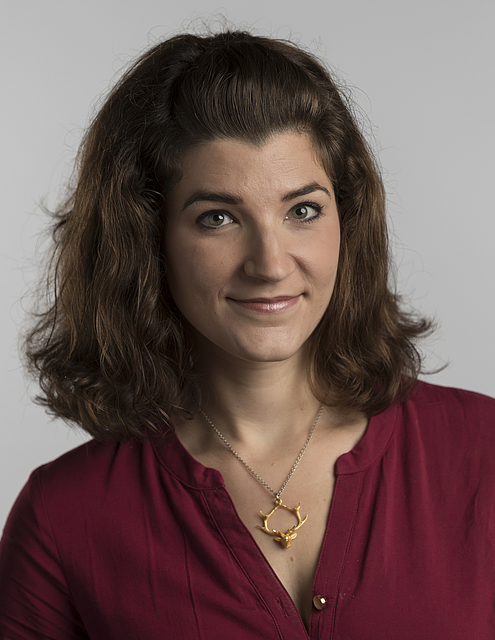Julia Strand completed a PhD in psychology at WashU in 2010. She is now an assistant professor at Carleton College. We caught up with Strand to ask her a few questions about her work and inspirations.

What sorts of questions inspire you?
I'm fascinated by how people process spoken language. Understanding speech should be a very difficult task; speech unfolds rapidly in time, many words are similar to one another (e.g., consider "fifteen" vs. "fifty"), and listeners need to deal with the fact that words sound very different depending on accent, gender, and intonation. But, despite the fact that understanding speech should be hard, for most people it seems to happen effortlessly and instantly. The question that keeps me awake at night is, How are we pulling this off? How are we able to understand spoken language so easily, despite the incredible complexity of the task?
What are some unexpected turns your research has taken since receiving your PhD?
The field of psychology has gone through some big changes in the last decade, so the most unexpected turn in my research has been adapting to embrace open science practices. When I was a grad student pre-registering studies and publicly sharing stimuli, data and code weren't part of the research process but are now things I do for every project. It's been exciting and rewarding to update the way I do science and how I train students to do it.
Given that you teach at a relatively small college, how do you interweave your research and teaching? And in what ways does that benefit your research?
I work at Carleton College in Northfield, MN. As a small, liberal arts college, Carleton highly values undergraduate teaching but also strongly supports faculty research. Part of my teaching load is working with undergraduate research assistants on projects in my lab. Thus, the college has formalized that part of my role as a teacher is training the next generation of scientists. Working with undergraduate research assistants is incredibly rewarding -- I've been amazed at the caliber of work they can do and the extent to which they can really function as collaborators.
How did the WashU environment, in particular the Department of Psychological & Brain Sciences, mold you into the professional you are today?
The WashU psych department was a great place to be a grad student, and I learned a number of valuable lessons there. First, I learned the importance of collaboration and asking for help. I loved that when I got hung up on a particular topic, there was a faculty member (who was a leading expert in that very thing) just down the hall. I also learned the importance of forming friendships in academia. I'm still in touch with many of my friends from grad school, and it's fun and rewarding to have professional collaborations and connections with them years later. I also really benefited from learning about interdisciplinary approaches to answering research questions. I was part of the Psychology, Neuroscience, and Genetics (IPNG) Training Grant, and I was grateful for the exposure to fields and perspectives I may not otherwise have pursued.
Where is your research headed in the future?
Much of the research on speech perception (including my own!) is conducted in relatively constrained, artificial settings. Consider how sitting in a sound booth with headphones on listening to individual words is different from, say, listening to a friend in a noisy coffee shop. I'm interested in better understanding how people perceive spoken language "in the wild," so I hope to find ways to more closely align the conditions in which we test to those of the real world.


